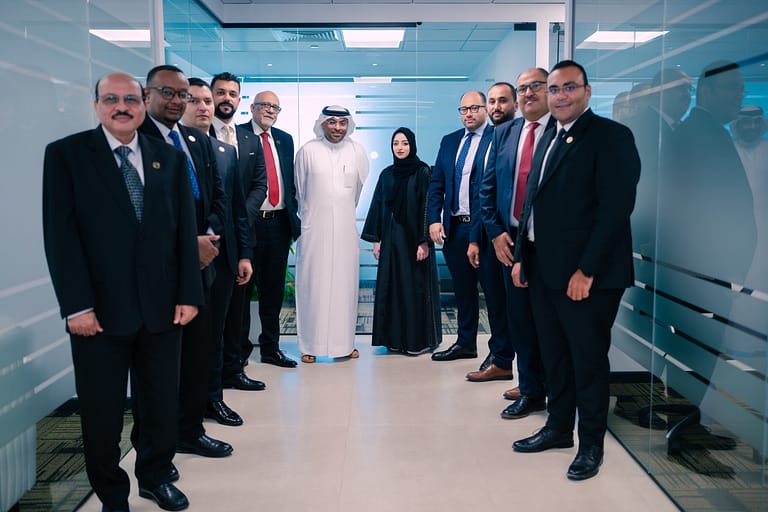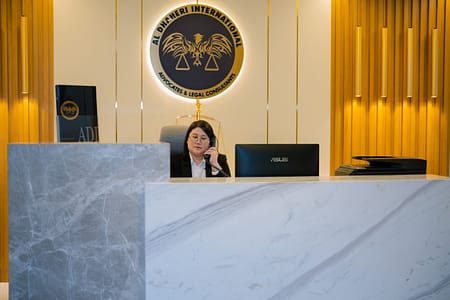Drafting agreements in the UAE requires a careful approach to ensure that the document is comprehensive, enforceable, and tailored to the specific needs of the parties involved. It is essential to review the cosmetic, legal, and the commercial aspects of the agreement to mitigate any potential risks and ambiguities, thereby enhancing overall contract effectiveness.
By adhering to these guidelines, lawyers in Dubai can reduce the likelihood of misinterpretation. Here are the best practices for drafting agreements in the UAE, highlighted by the experts at Al Dhaheri International Advocates and Legal Consultants.
Cosmetic Aspects
The cosmetic aspect of an agreement pertains to its formatting and presentation. A well-organized clear document enhances readability and reduces misunderstandings. Key considerations include:
· Consistency in Formatting: Ensure uniformity in font size, paragraph alignment, clear headings & sub-headings, and spacing. Include page numbers and a table of contents for lengthy contracts.
· Error-Free Drafting: Avoid grammatical and typographical errors. A proofread document reflects the attention to detail.
Substantial or Legal Aspects
The substantial or legal aspects ensure that the contract is enforceable and compliant with relevant laws and regulations providing legal protection and clarity for all parties. Key considerations include:
· Applicable Laws and Regulations: Determine which laws govern the agreement. For domestic contracts, identify and pen-out the relevant UAE laws.
· Confidentiality and Non-Disclosure Agreements: Include clauses that protect sensitive information shared between the parties, ensuring confidentiality is maintained.
· Dispute Resolution and Governing Laws: Specify the methods for resolving disputes, such as mediation, arbitration, or litigation, and outline the process for initiating these procedures. Indicate which laws will govern the contract and which jurisdiction will have authority in the event of a legal dispute.
· International Standards: For agreements involving cross-border parties, include standard contractual clauses that comply with international standards. This is particularly important in industries with strict regulatory requirements.
Understanding the legal landscape and incorporating appropriate clauses is essential for creating precise agreements. Other notable takeaways include defining key terms used within the contract to avoid ambiguity and clearly identifying all parties entering the contract, including their legal names and contact information. Consider outlining the specific obligations and responsibilities of each party.
Commercial Aspects
The commercial aspect of an agreement pertains to the terms that affect the financial and business operational interests of the parties. Ensuring that the commercial terms align with the business objectives and are fair to both parties is a principal element. Key considerations include:
· Payment Terms and Timeframes on Deliverables: Clearly define the agreed upon pricings, payment schedules, methods and priorities concerning payments and any other conditions for payment adjustments. Define Specific deadlines for deliverables and project completion dates (if applicable) to ensure parties obligations. These terms maybe in line with industry standards and realistic for both parties.
· Termination: Establish the conditions under which the contract can be terminated by either party, including notice periods and consequences of termination.
· Inter-departmental Collaboration: Collaborate with finance and other relevant managing departments to align commercial terms with the overall business strategy. This approach ensures that the agreement supports the broader business objectives.
Whether you are in-house counsel or representing a client, align the commercial terms with your client’s interests. Effective negotiation is crucial to securing favorable terms. Dubai law firms emphasize the importance of these aspects to ensure that agreements are not only legally sound but also commercially viable.
Conclusion
In a dynamic legal environment like Dubai, adhering to these best practices is fundamental. By focusing on these elements, legal professionals can create documents that are clear, comprehensive, and aligned with the parties’ interests. Al Dhaheri International Advocates and Legal Consultants underscore the importance of thorough and accurate drafting practices to ensure that agreements are not only legally enforceable but also support the commercial objectives of the parties involved.





